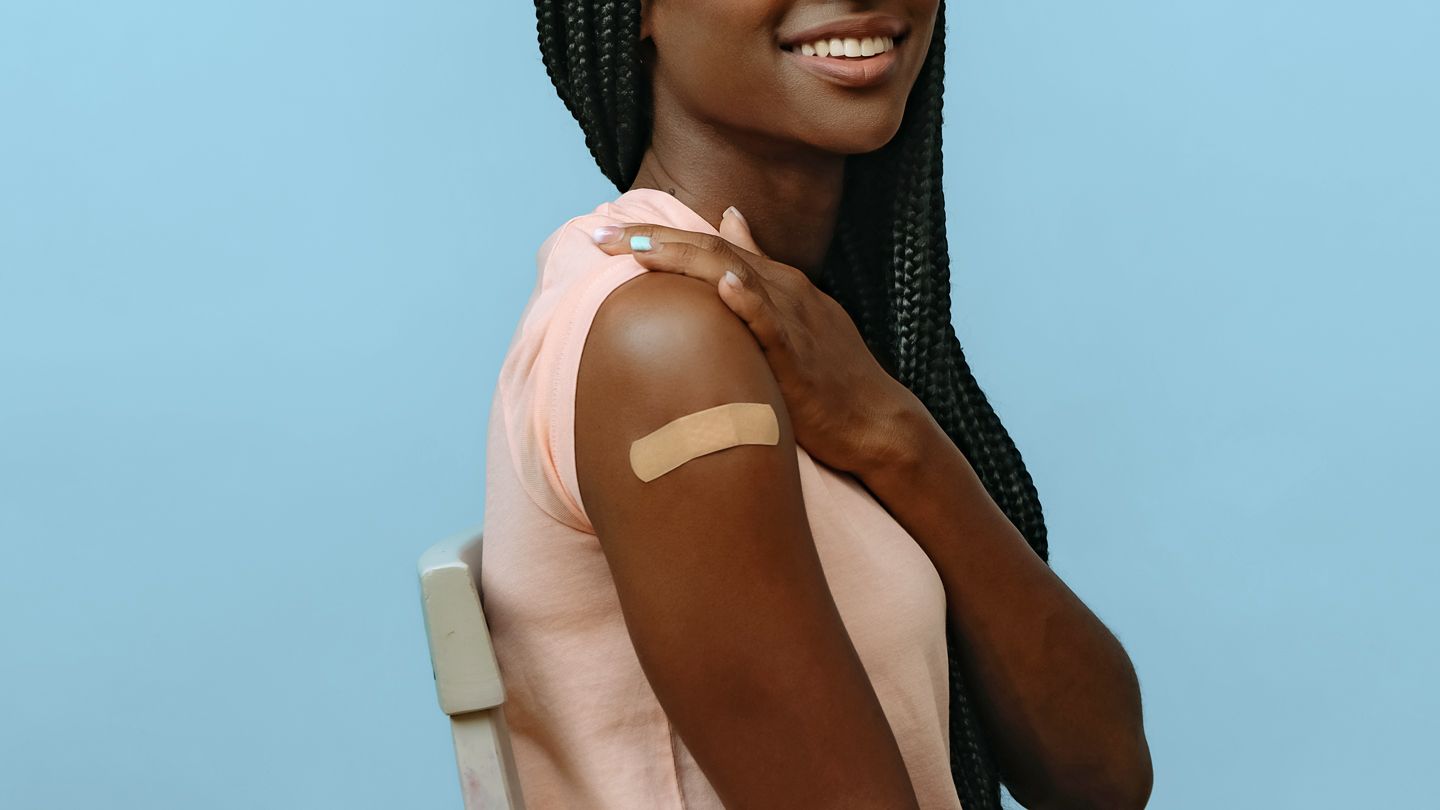New Injection Offers 100 Percent Protection Against HIV in Women
A new study showed that twice-a-year shots of lenacapavir (Sunlenca) completely blocked HIV infection in women. Trials with men are ongoing.


The study, which involved more than 5,000 women between ages 16 and 26 in Africa, demonstrated that twice-yearly injections of lenacapavir (Sunlenca) were 100 percent effective in blocking HIV (human immunodeficiency virus), the virus that causes AIDS (acquired immunodeficiency syndrome). The injections were also well-tolerated and produced no major side effects.
“No adolescent girls or young women receiving twice-yearly lenacapavir acquired HIV infection in this trial,” wrote the study collaborators, led by the author Linda-Gail Bekker, MBChB, the deputy director of the Desmond Tutu HIV Centre at the Institute of Infectious Disease and Molecular Medicine at the University of Cape Town in South Africa.
“A twice-yearly PrEP choice could overcome challenges with respect to adherence and result in substantial protection against HIV infection for women worldwide,” the study authors wrote.
“We expect the results [from these trials] to be similar with these other at-risk groups in the United States,” says Philip Grant, MD, a clinical associate professor of medicine at Stanford University in California, whose research focuses on HIV complications. Dr. Grant wasn’t involved in the new lenacapavir research.
Great Strides Against a Persistent Health Problem
Existing Preventive Treatments Can Be Challenging to Stick With
But there can be issues with taking these drugs consistently, which may give lenacapavir an advantage. In the recent trial, of the 2,134 women given lenacapavir, none contracted HIV. On the other hand, 16 cases were detected in a group of 1,068 women taking Truvada, and 39 infections were recorded among 2,136 women receiving Descovy.
Adherence is often a problem with drugs that block HIV infection. “There are lots of prevention tools out there, and if someone is at risk, it’s important to access one of them, whether it be oral or an injectable, but a lot of people have a hard time taking pills,” says Grant. “People aren’t necessarily great at taking their pills every day.”
When it comes to injectable options, Grant notes that some people may prefer lenacapavir over cabotegravir because it requires just two shots a year compared with six.
How Much Does Sunlenca Cost?
“Once it’s approved for HIV prevention, the price will be looked at again in the United States,” says Grant. “The price will need to go down for it to be more widely used for prevention.”
Everyday Health follows strict sourcing guidelines to ensure the accuracy of its content, outlined in our editorial policy. We use only trustworthy sources, including peer-reviewed studies, board-certified medical experts, patients with lived experience, and information from top institutions.
Sources
- Bekker L et al. Twice-Yearly Lenacapavir or Daily F/TAF for HIV Prevention in Cisgender Women. New England Journal of Medicine. July 24, 2024.
- Pre-Exposure Prophylaxis (PrEP). Centers for Disease Control and Prevention. July 5, 2022.
- Gilead’s Twice-Yearly Lenacapavir Demonstrated 100% Efficacy and Superiority to Daily Truvada® for HIV Prevention. Gilead. June 20, 2024.
- Global HIV & AIDS Statistics — Fact Sheet. UNAIDS. 2024.
- Who Is at Risk for HIV? HIV.gov. June 15, 2022.
- Multiple Sexual Partnerships. UNAIDS.
- U.S. Food and Drug Administration Approves Gilead’s Truvada® for Reducing the Risk of Acquiring HIV. Gilead. July 16, 2012.
- FDA Approves Second Drug to Prevent HIV Infection as Part of Ongoing Efforts to End the HIV Epidemic. U.S. Food and Drug Administration. October 3, 2019.
- FDA Approves First Injectable Treatment for HIV Pre-Exposure Prevention. U.S. Food and Drug Administration. December 20, 2021.
- Gilead’s Advancing Access Program May Be Able to Help Your Patients With Insurance and Financial Support Information for Sunlenca. Gilead. May 2024.

Don Rauf
Author
Don Rauf has been a freelance health writer for over 12 years and his writing has been featured in HealthDay, CBS News, WebMD, U.S. News & World Report, Mental Floss, United Press International (UPI), Health, and MedicineNet. He was previously a reporter for DailyRx.com where he covered stories related to cardiology, diabetes, lung cancer, prostate cancer, erectile dysfunction, menopause, and allergies. He has interviewed doctors and pharmaceutical representatives in the U.S. and abroad.
He is a prolific writer and has written more than 50 books, including Lost America: Vanished Civilizations, Abandoned Towns, and Roadside Attractions. Rauf lives in Seattle, Washington.